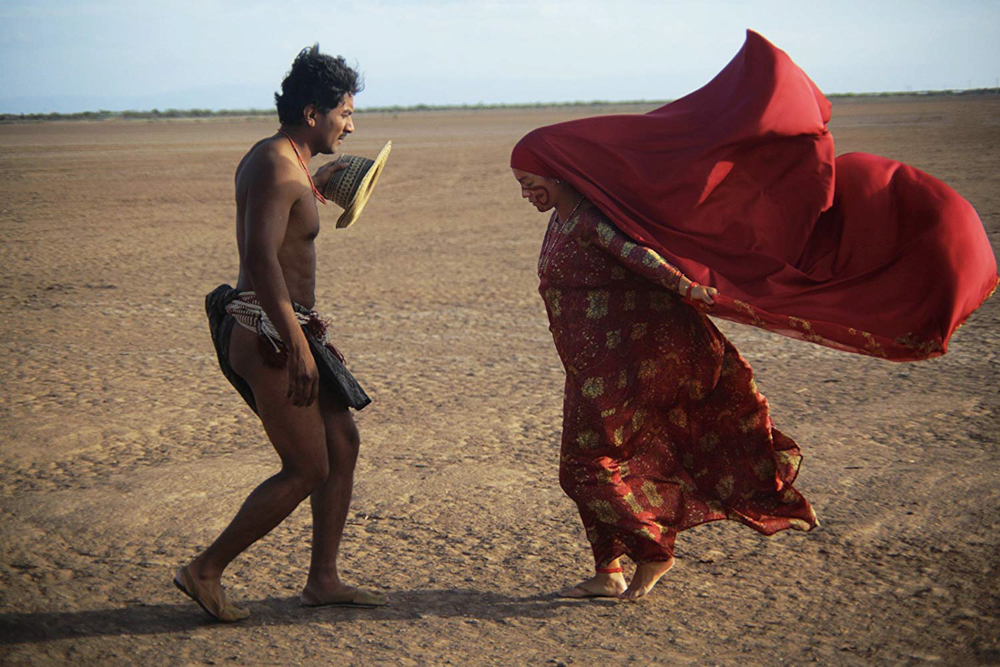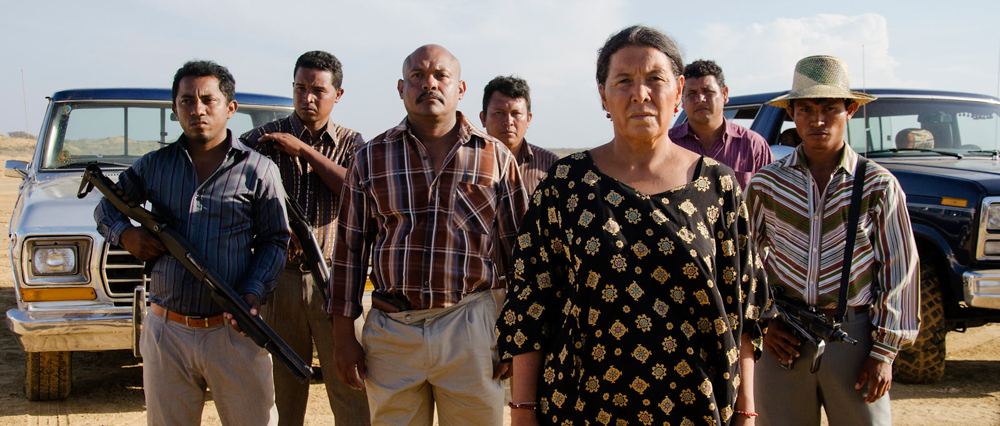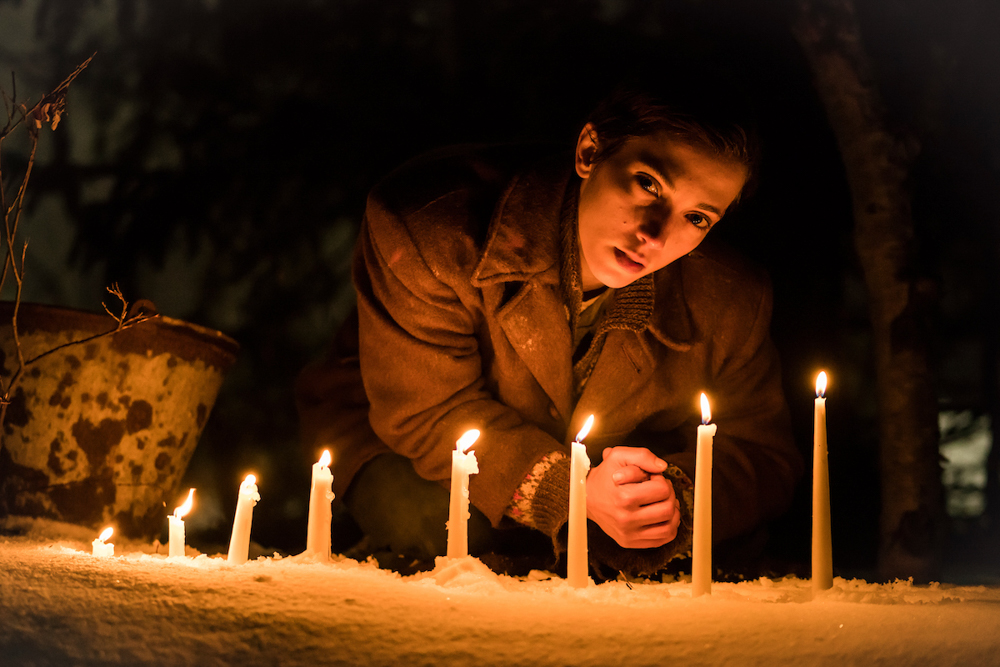SBIFF Day 7: Adventures in the Multiplex
Foreign Films Dominate SBIFF Screens

There is a tinge of irony that a large portion of SBIFF’s bounty of foreign films — the “international” piece of the festival’s puzzle — are screened in the multiplexes of the Metro and the Fiesta 5, although many of the more memorable movies seen in those non-arthouses give an impression of “we’re not in the American multiplex anymore.” Sometimes where a film is screened is no matter, as with the clever, history and hypnosis-based “who made whodunnit” Murderous Trance aka The Guardian Angel, and the Danish In Love and War, which are strong, polished numbers with a mainstream cinema appeal. But there are also unorthodox films arriving with an offbeat “festival” patina, probably destined to never lighten a multiplex screen in festival off-season. Take, for example, two of yesterday’s prize screenings, the Colombian Birds of Passage and the Lativan Van Goghs (no, it’s not yet another Vincent biopic).
Birds of Passage is an especially fascinating example of genre mixing, which co-director Ciro Guerra, in a Q&A after the first screening, reportedly described as “anti-genre.” The truth-based story concerns the fragile and fatal intersection of the indigenous Wayuu tribe of northern Colombia and growing drug trade’s seductions and ultimately destructive force. We are instantly sucked into the Colombian gangster elements, having been duly briefed on the subject with the television series Narcos. But the more compelling aspect of the film traces its story from the Wayuu perspective from the 1960s through the ’80s. While marijuana trafficking brought newfound prosperity, it eventually ripped apart the social and family fabric of Wayuu life, another victim of imperialist uprooting and modernity.

Guerra (who directed the film with Cristina Gallego) is making a triumphant return to SBIFF with the film, following his 2015 appearance with the stunning Embrace of the Serpent, one of that year’s highlights. Whereas Embrace dealt historically and mystically with the legacy of indigenous, pre-Spanish life in Colombia, Birds of Passage takes artful aim at the roots-obliterating effects of modernity on indigenous antiquity in Colombia. At film’s end, a sage sings/narrates a song about the demise, in which “wild grass turned into locusts.”
Father-son conflicts and coming-to-terms meets late-life unraveling, in a bracingly new and creative fashion, in Sergey Livnev’s refreshingly unique and brusquely poignant Van Goghs. Mark (Aleksey Serebryakov) is a dark-witted and cynical artist whose conceptual art involves creating elaborate knotted rope, and then untying it. (In a line reflecting the story as a whole, a gallerist quips about his art: “Just like Russia. You create something, and then destroy it.”) Mark’s father is a famed conductor (Daniel Olbrychski), whose monomaniacal bearing and lifelong neglect of his son is coming to a head as his life approaches its last chapter, via Parkinson’s and dementia.
Far from falling into the formula of tales of an elder’s slide into oblivion, the film keeps us tuned in and surprised by new discoveries about the son’s troubled youth — including a pin in his head resulting in migraine attacks — and emotionally gripping confrontations/resolutions with his dying patriarch. As for the Van Gogh connection, the tortured artist angle may be part of the equation, but so is a more uplifting, late-breaking denouement to an altogether illuminating film.

One odd element in the otherwise engaging Norwegian film The Bird Catcher — about the Jewish oppression in Nazi-held Norway — is the fact that it’s in English, an impediment to veracity. Norwegian is logically spoken in the inventive and emotionally clenching Phoenix, by director-writer Camilla Strøm Henriksen, about a teenager (Ylva Bjørkaas Thedin, a beautiful model of cool restraint) who exercises the notion of leaving things unsaid to the extreme. She is forced to take on the role of family anchor, as her mother is a divorced alcoholic in a tailspin, and her father a wandering jazz trumpeter, not as heroic as he may seem. What unfolds in the film involves some startling revelations and suppressed details, in an emotional equation that feels locked into the special character of Nordic-romantic expression. Don’t expect to see it in a multiplex again anytime soon.
[ Click here to view the complete coverage. ]



